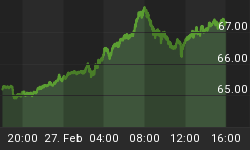Russia and Argentina are not the only places where savings deposits are lost. In the US, savers lose money in banks all the time.
A few days ago I had a long discussion with the news desk of the New York Times, regarding the fact that they were not reporting systemic retail banking problems in Russia. In a global financial system this vulnerability represents a major issue and concern.
Unlike the Washington Post, the New York Times had me send some documentation to their Russian and international business correspondents. I had the opportunity to explain to them the magnitude and implications of the story. They finally ran a piece on the Russian banks on July 9. Perhaps my efforts had some effect; we will never know.
Closer to Home, and on the Next Level
People don't realize that savers lose money all the time in failed US banking institutions. Statistics at the Federal Deposit Insurance Company (FDIC) suggest that uninsured savings deposits are routinely lost through the receivership and liquidation process.1
As a depositor, your asset becomes the bank's liability. You are providing the bank with credit so they can lend money to other people. Recovery levels of uninsured deposits at some banks, like Dollar Savings, were high. In contrast, banks with high risk portfolios, like the credit card happy Next Bank of Phoenix, had an abysmal rate of recovery. Again, as a depositor you are lending the bank money against the strength or weakness of their balance sheet.
What happens in places like Russia and Argentina could very well happen closer to home. Shortly after 9-11, the banking system was two blocks away from breaking. We are overly confident that US bank failures are fully insured, and that any problem with the banking system as a whole can remain manageable.
In the US, banking insurance will be effective only if bank failures are rare. It is clear that this shortcoming has been recognized. The evidence is the provisions that are in place in retail savings agreements, giving banks the right to freeze funds temporarily in any interest-bearing account.
People sign 'boiler plate' legal documents without considering the ramifications and risks. Traditionally, the party with the money in hand gets to set the terms and conditions of lending. Yet as depositors we routinely sign away our rights and bargaining power.
In Canada, insurance levels are lower and savers have fewer financial institutions to choose from. Banks use secondary corporations (shell companies would be a strong way of putting it) to maneuver money into the insurance system. I don't know whether or not that strategy will prove to be effective for savers.
According to D Bruce Stratton over at www.safehaven.com the Canadian Investor Protection Fund has some significant limitations. Bruce suggests a strategy that allocates funds to short term notes, gold , and cash.
In a systemic event government insurance reserve requirements will never be adequate. This means that insurance proceeds will be rationed or subject to interpretation.
Real Estate as Savings
Most homeowners in the United States perceive that their home can function like a savings account. After all, people routinely write checks against their houses. When they don't pay their loans the house goes into receivership conceptually, in the same way that the FDIC liquidates the assets of a bank gone bad.
Reserves are a function of real estate valuation and loan-to-value ratios. We know for a certainty that housing valuations are too high and that many major US companies provide easy credit.
In a changing interest rate environment, exotic and dangerous lending strategies are now being used to partially mask the failure of this important sector.
As an example, Ditech tied its loans to the London Interbank Offered Rate (LIBOR). This way, a bunch of British bankers can raise rates without political considerations coming into play. It's a great marketing tool because the customer will see the lowest possible rate. The feckless debt consumer doesn't realize that LIBOR will start off lower but will move upwards faster and further than US prime.
When Will Layoffs Start?
Mortgage lending companies forward-load revenue, so they need to attract more and more customers all the time. They will not admit that they have a major problem until January and February of 2005, after the election, which will be confirmed at that time by industry-wide layoffs.
Short sales of real estate will not occur until sometime later. This is a term used to describe a condition where the lender disposes of property below the value of loans and debts outstanding on that property. At that time, unsecured savings will be destroyed.
In this newsletter I am more concerned about savers than lenders. As savers we must protect our assets from unsecured borrowers.
References:
1http://www.fdic.gov/bank/individual/failed/index.html















